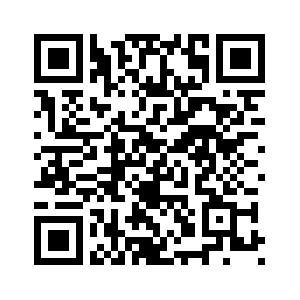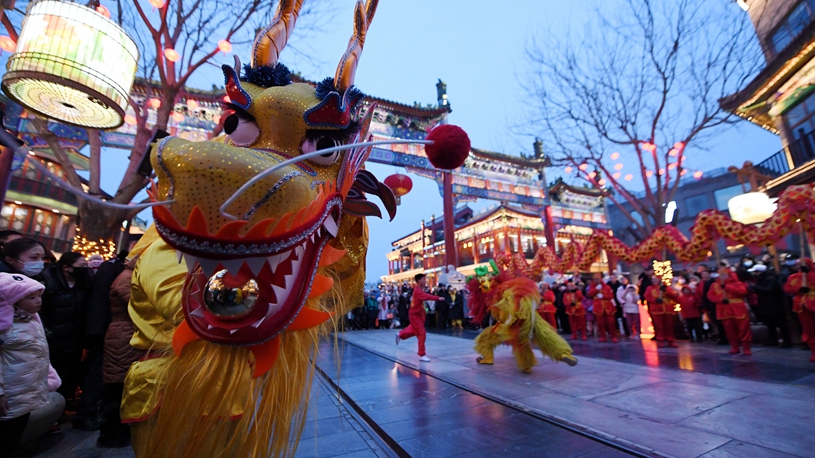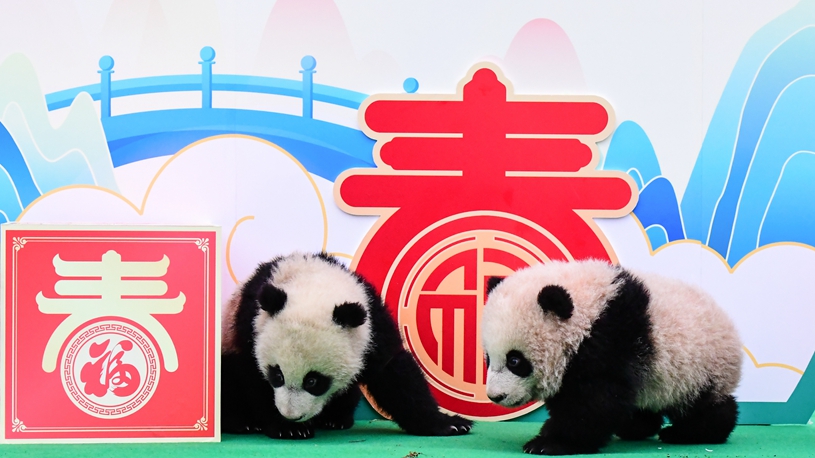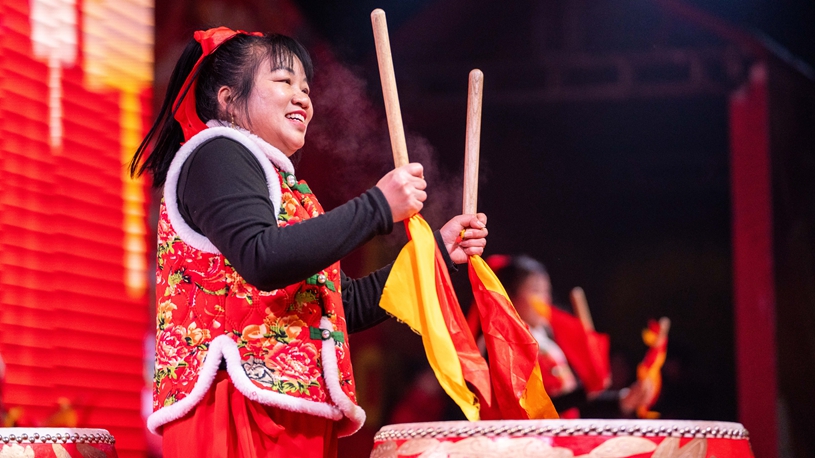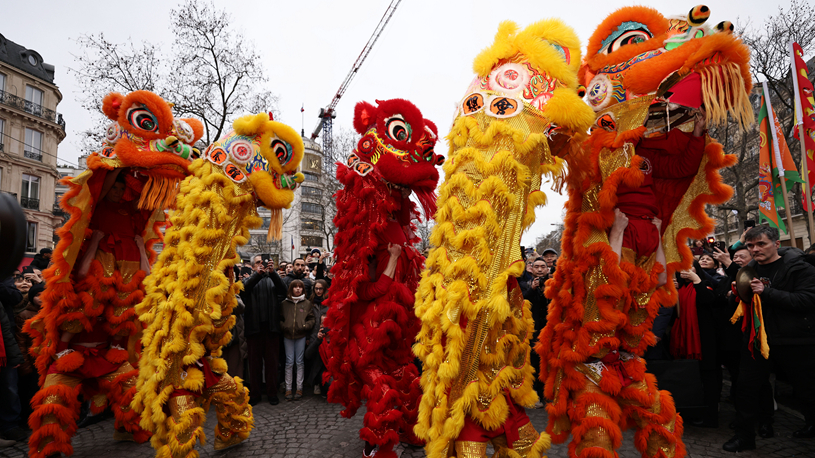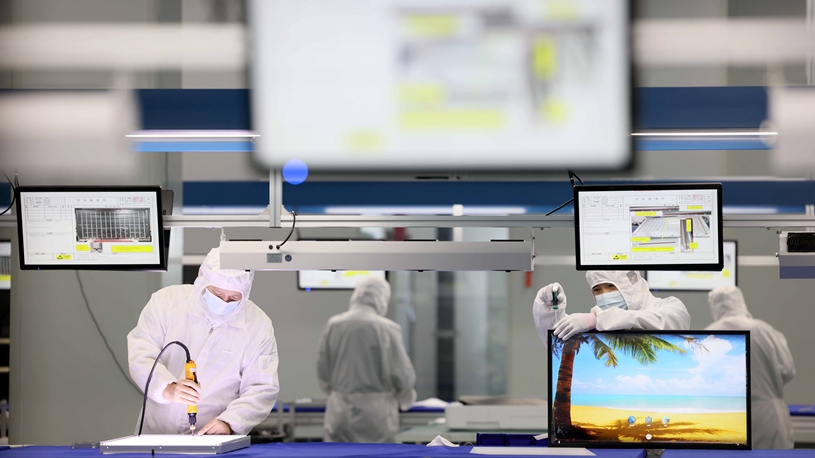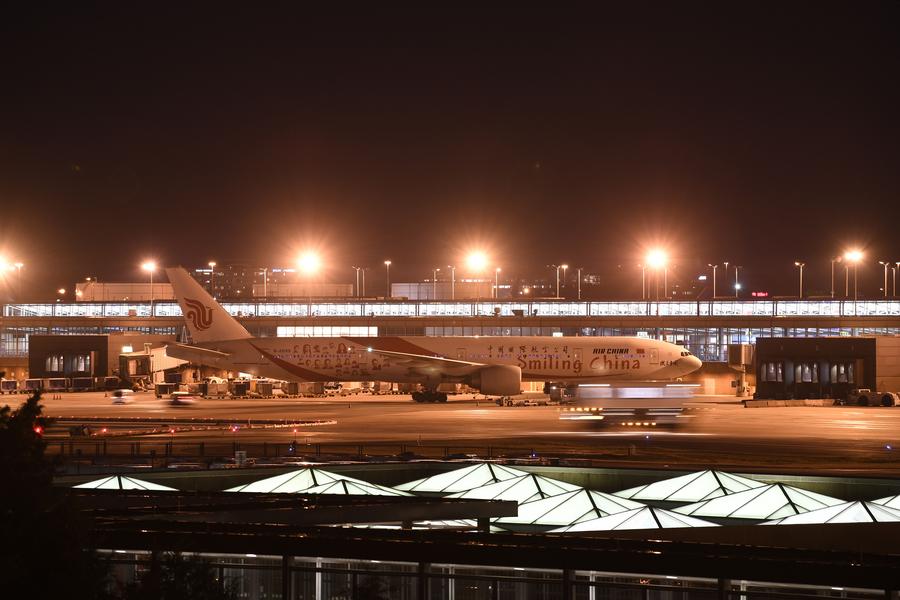
Air China flight 818, operated by a Boeing 777 jet, is seen at Dulles International Airport in Virginia, the United States, on Sept. 17, 2019. (Xinhua/Liu Jie)
They still hold a dim hope, together with their American colleagues, that geopolitical tension and securitization will one day step out of the way of academic and educational cooperation between the two peoples.
BEIJING, Feb. 7 (Xinhua) -- Gazed by two armed inspectors, Fiona Meng had to sign a document before she was allowed to read it.
After eight hours at the secondary inspection, a pat-down, and a forcible payment of 3,700 U.S. dollars for her deportation trip, she was escorted to the detention room, stripped of her coat, sweater, shoes, cough medicine, and any means of communication with anyone.
She had no idea how long she had to stay there, in the company of three thin sheets, a bunch of surveillance cameras, and an open toilet, in the chilly North Virginia cell, December night. It turned out to be 12 hours.
"The inspectors said they would detain me in a certain room, I can't remember its name. My ears were not capable to listen, nor my brain to remember it," said the final year biology PhD candidate.
Meng's experience of unwarranted interrogation, harassment, and deportation was regretfully not a rare case for Chinese students at the U.S. border.
At the San Francisco Summit in November, heads of state from China and the United States pledged to enhance and facilitate cultural, educational, and people-to-people exchanges.
During the meeting between U.S. National Security Adviser Jake Sullivan and Chinese Foreign Minister Wang Yi in Bangkok, Thailand last month, both sides reiterated their commitment to taking further steps towards such a vision.
A half-hour drive away from the West Wing, however, the enthusiasm was somehow not shared by customs and border protection officers at Washington Dulles International Airport.
Since the historical summit, at least 11 Chinese students with a valid visa and travel documents were deported or canceled visas on-site at the airport by U.S. authorities. Eight cases at Dulles alone.
Some victims found their questioning records distorted. One student, for example, found false content about China's talent programs and military industry enterprises added to her record.
The Chinese Embassy on Jan. 29 warned Chinese students not to enter from Dulles Airport and has lodged a solemn representation to the United States.
Meng recalled two plain-clothed female inspectors who went through her phone thoroughly, and interrogated whether she received scholarships, was funded by the China Scholarship Council (CSC), or participated in confidential research.
She was granted a university scholarship during her undergraduate study. No CSC funding. No confidential research.
Still, she was banned from entering the United States for five years, with her dissertation defense one semester away and a pile of supplementary experiments pending.
Despite constant efforts from her supervisor, the international student office, and graduate student union of her university, and the Chinese Embassy, Meng's case is stagnated, like the lives and careers of many Chinese students pursuing study in the United States.
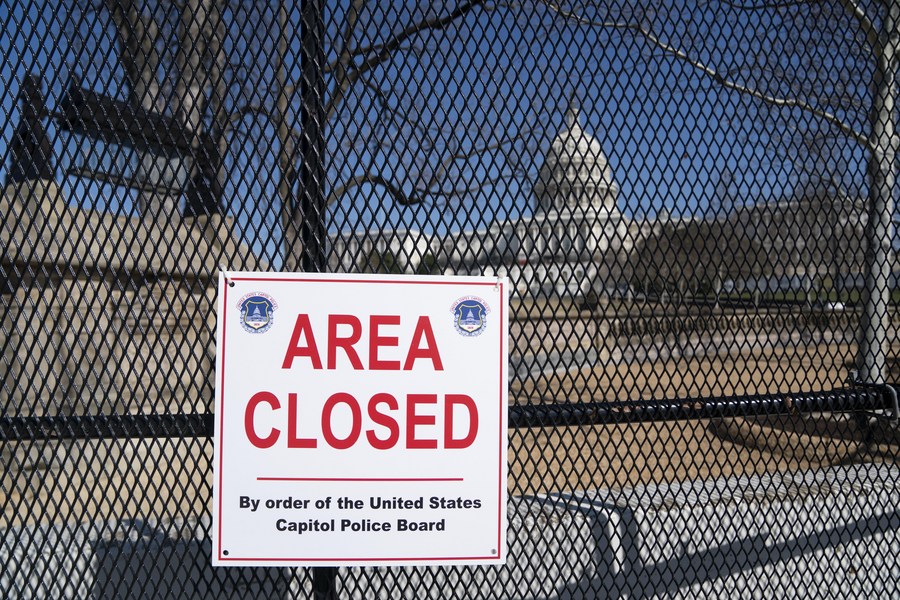
Photo taken on Feb. 28, 2022 shows the U.S. Capitol building, seen through a barrier fence, in Washington, D.C., the United States. (Xinhua/Liu Jie)
"This is absolutely unacceptable," Xie Feng, the Chinese ambassador in Washington, said on Jan. 28 at an event at the embassy on student exchanges.
"The U.S. likes to portray itself as open, inclusive and a place advocating academic freedom and 'no border in science,' but what it does is politicizing and weaponizing academic research, and overstretching the concept of national security to wantonly suppress and ill-treat Chinese students," said the Chinese Embassy in the United States on social media.
"WATCH YOURSELF WHILE IN THE UNITED STATES"
The harassment of Chinese students at Washington Dulles International Airport was new, but not alone.
In the summer of 2023, the first post-pandemic Tsinghua University overseas study trip group arrived at Boston Logan International Airport, greeted by hours of interrogation.
In a recent interview with Xinhua, Sam Yin, a quantum information major student, recalled his questioning by two customs officers.
"Why are you not a CPC member? That was the first question they asked me," Sam said. "I didn't see it coming."
Other students were asked similar questions on party affiliation.
Sam told the customs officer that each Chinese person could choose whether to join the CPC or not.
"You are lying. How can you represent Tsinghua if you are not a CPC member?" Sam recounted the response from the U.S. officer.
"Isn't that the meaning of representation? That we would have both party members and non-party members?" he said.
Sam said in hours of interrogation he was accused of lying multiple times, and the U.S. officers seemed to hold a guilty-until-proven-innocent mentality.
"According to their logic, because I study physics and physics is an advanced discipline, it must serve the Chinese military, and therefore I must be associated with the Chinese military, and that everything I said must be lies," Sam said.
According to the students, another logic that the U.S. officers seemed to hold was that because the group's itinerary included meeting with some U.S. think tanks and some of the think tanks had close relationships with the U.S. government, the students are suspected of being after U.S. government secrets.
Some of the students were also asked why they looked nervous, and the students answered, that if you are held up by a police officer without committing any wrongdoing, you'd think something's wrong too.
Students recalled toward the end of the questioning, one of the U.S. officers warned them: "Don't think that you are so skilled in answering questions, we are proceeding in a professional manner, you need to watch yourself while in the United States."
In January, at Chicago O'Hare International Airport, the study trip group led by Xie Tao, professor and dean of the School of International Relations and Diplomacy at Beijing Foreign Studies University was greeted with similar paranoia.
"All the six students plus myself were guided to the other side of the counter. I was questioned, or you could use the word interrogated, for nearly three hours."
"I know far more cases of Chinese scholars and students being questioned for extended hours by U.S. immigration officers than the reported case of American scholars and students questioned by Chinese authorities. I got the affirmation from my American counterparts. They felt very outraged and upset at my experiences."
"Buy a ticket and come over to China. See with your own eyes," Prof. Xie replied when asked for his message to American students who want to know what is happening in China.
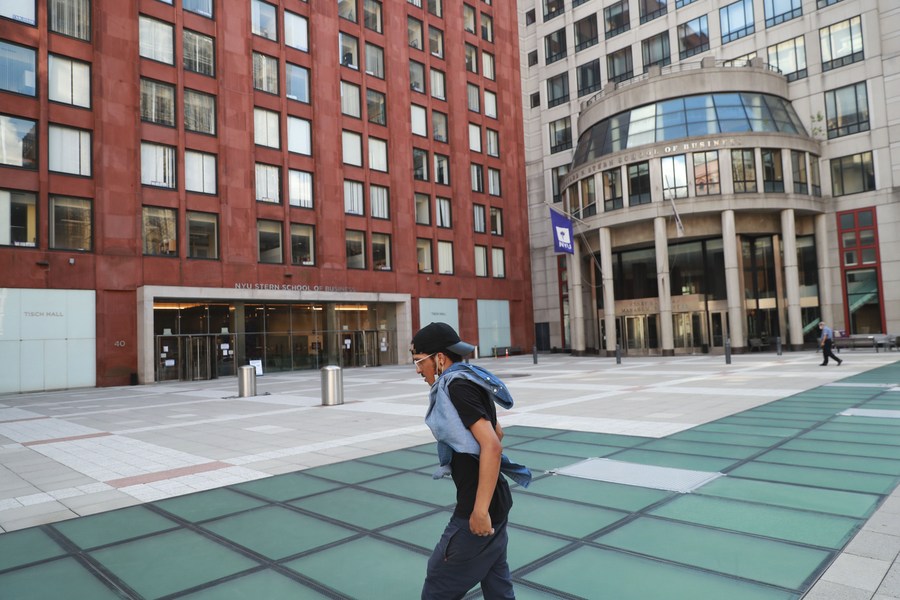
A man walks past buildings of New York University in New York, the United States, July 14, 2020. (Xinhua/Wang Ying)
He was gravely concerned with U.S. authorities' unwarranted harassment of Chinese students as such behaviors "are actually decoupling the most important ties between the two countries, that is people-to-people exchanges."
"GUILTY WITH WHATEVER ANSWERS"
Chinese-born researchers and tech industry professionals are in an even more delicate position, as profiling, interrogation, and aggressive or passive repulsion are haunting every aspect of their careers and private lives.
Right before being granted tenure, Hannah Hu decided to quit her job as a faculty member at the University of North Texas in September 2020.
"One day in August, the university repelled overnight dozens of visiting researchers from China and demanded them to leave within days," Hu recalled the unprecedented incident.
Such decisions require consultation and authorization of all deans as per procedure, yet the two deans of the College of Engineering and the College of Science, both of Chinese descent, were excluded from the meeting.
"So the whole thing is about China?" Asked a participant at an international faculty member meeting afterward.
The answer was a blunt and brazen "Yes."
"At the end of the meeting we concluded that it's better not to cooperate with researchers from China for a while," said Hu. "And I am Chinese."
Into the fall semester, Hu found she no longer had access to the database of Genotypes and Phenotypes (dbGaP), an indispensable database in her field of research.
"Although since 2018 we have been hearing about researchers taken away by FBI or labs shut down because of connection with China, I didn't expect it would happen to me," Hu said.
Christopher Zhang, a physicist then working at Princeton Plasma Physics Laboratory, ran into a snag departing from John F. Kennedy International Airport in New York in the same month.
"They (customs officers) took out a list and started interrogating every person who's called," recalled Zhang.
Two officers came to him, one went through his luggage without consent, while the other questioned his work, field of research, families, political identity in China, and other social relations.
"They asked trap questions, like why did you join CPC, and you can easily be found guilty with whatever answers," Zhang said.
After the last boarding broadcast, the officers forcibly dug through his digital devices' contents, and he was finally allowed to board.
Meng is now contacting her colleagues in the lab to help her complete the experiments. Hu is working for a Swiss pharmaceutical company in China. Zhang found a faculty position at a Chinese university.
They still hold a dim hope, together with their American colleagues, that geopolitical tension and securitization will one day step out of the way of academic and educational cooperation between the two peoples.
(P.S. All names in the story are pseudonyms as required by sources out of security concerns. More victims we contacted did not speak to us for their fear of retaliation.)■
